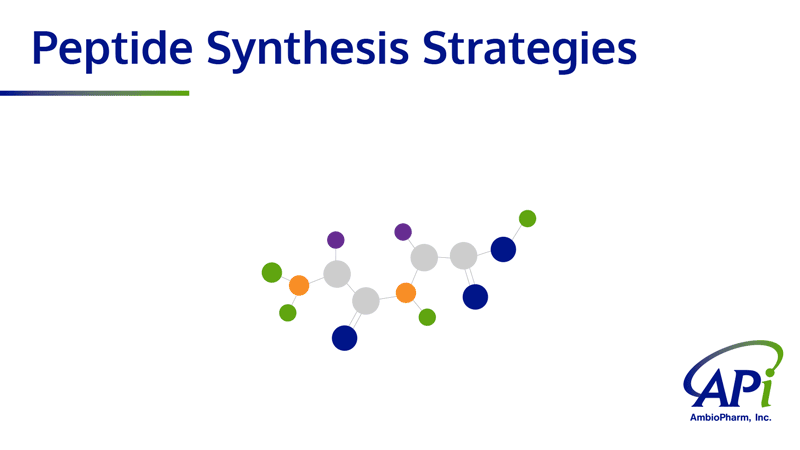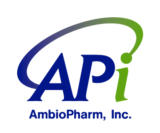First published: June 13, 2022
The experts at AmbioPharm have depth of peptide synthesis experience and can often streamline a synthesis from the beginning by anticipating sequence difficulties and determining a strategy. Although like many things in chemistry, peptides can be unpredictable, and sometimes developing a strategy may take time and involves the fine-tuning of a peptide synthesis process.
Solid Phase Peptide Synthesis, or SPPS, is overwhelmingly the first strategy chosen when synthesizing a peptide. SPPS is usually the fastest, easiest, and most economical method, and often produces great results (a peptide of good purity and yield). However, not all peptides can be manufactured successfully or economically with SPPS. Sometimes a coupling of two amino acids due to steric hindrance may be difficult to achieve on the resin. In these cases, other peptide synthesis strategies are evaluated. Solution phase peptide synthesis, also known as liquid phase peptide synthesis, or LPPS, often produces high quality peptides and is economical for shorter sequences (around 20 amino acids or less). While SPPS requires excess reagents to drive a reaction forward to products (Le Chatelier’s principle), LPPS often can use fewer excess reagents. LPPS manufactured peptides can often also be purified without the use of HPLC and crystallization can yield high purity peptides. Another strategy is a hybrid peptide synthesis which utilizes fully protected peptide fragments, often made by LPPS, that are coupled onto resin-bound peptide fragments. For very long peptides, we may even consider a native chemical ligation (NCL) approach.

Further reading:
What methods do you use to synthesize peptides?
What is the maximum peptide length you can synthesize?
Synthesis of Proteins by Native Chemical Ligation (external link)
Native Chemical Ligation: A Boon to Peptide Chemistry (external link)
Webinar:
Peptide API’s from g to 1000kg: cGMP and nonGMP (watch on YouTube)
Interested in learning more about our peptide manufacturing and development capabilities? Please contact us here.

 中文
中文